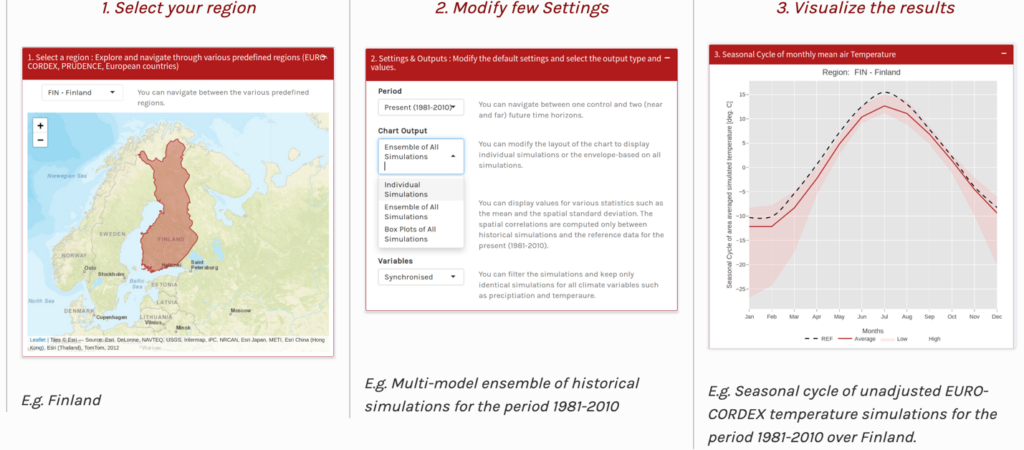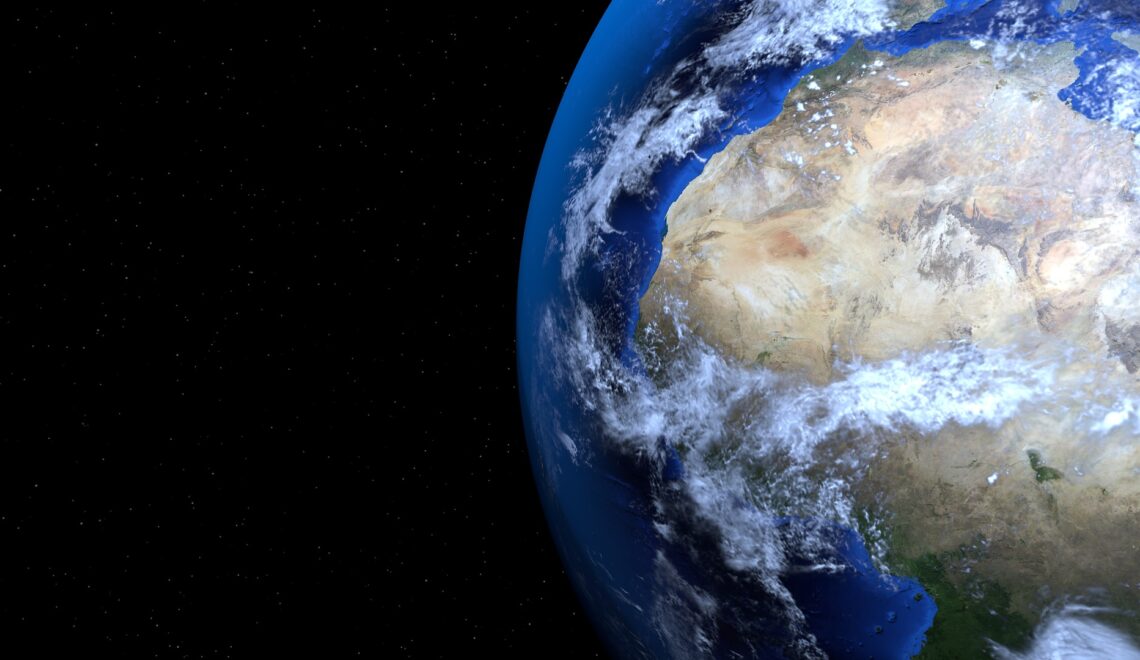Co-creating an operationally running novel climate service application required effective project management in a Copernicus Climate Change Service project, called the Data Evaluation for Climate Models (DECM, 51_Lot4) https://climate.copernicus.eu/node/243/.
HILPPA GREGOW, ANTTI MÄKELÄ, ANNA SALONEN
Finnish Meteorological Institute
The Data Evaluation for Climate Models (DECM) project was an EU-funded Copernicus Climate Change Service (C3S) project running for a 30 months period ending in February 2019. In DECM, The Finnish Meteorological Institute (FMI) was the contractor working for ECMWF (European Centre for Medium-Range Weather Forecasts) with seven sub-contractors (GERICS, OMSZ, DMI, MetNo, Climate Data Factory, Helsinki University, CSC Finland). DECM team prepared deliverables covering reports, surveys, tutorials, webinars, web pages, blog pages and most importantly an application for evaluating the data of the climate models. This is called the DECM App (Fig. 1). Efforts were especially needed in generating evaluation and quality control framework of the CMIP5 and CORDEX datasets and in complementing the development of the user-relevant tools. The reports concentrated on the data collection and intercomparing, scientific gap analysis as well as the climate service user needs. The synthesis of all written deliverables formed the basis of an evaluation and quality control (EQC) framework for climate model data for the Copernicus Climate Data Store (CDS). To allow fast and interactive development, github, R-shiny Apps, WordPress, Google docs and Slack services were applied during the project.
Advancing the use of climate services cannot be done without direct interaction with users and without understanding the real needs and preferences (Harjanne and Rautio, 2019, Ervasti et al. 2018, Gregow et al. 2019). Related to the user interaction, the DECM project was monitored by two specific key performance indicators: That user requirements are 100% present in the DECM App and that the DECM App is 100% compatible with the climate data store (CDS) of the C3S. Here, however, we faced a big challenge since the CDS was under construction in parallel with our project. To be able to follow the CDS development carefully and to avoid overlap of the parallel C3S projects, we had to interact with five other C3S projects at the same time.
All in all, in DECM, effective project management played a key role for reaching the operational goals in time. We organized 28 monthly progress monitoring telco’s with subcontractors and 18 quarterly progress and review meetings with ECMWF. In total 20 management deliverable and 11 milestone reports were produced. We were present in the advisory board meetings and essential meetings of the C3S sister projects. DECM was also presented in the European Meteorological Society (EMS) conference, the Euro-Cordex annual meetings in 2017–2018 and in the General Assemblies of C3S. The final DECM App is running at https://decm.copernicus-climate.eu/. It was successfully launched in February 2019.
References
Ervasti, T., et al., 2018: Mapping users’ expectations regarding extended-range forecasts, Adv. Sci. Res., 15, 99–106, DOI: 10.5194/asr-15-99-2018
Gregow, H., et al., 2019: Preparing for peat production seasons in Finland and experimenting with long range impact forecasting, Climate Services, 14, 37–50, DOI: 10.1016/j.cliser.2019.04.003
Harjanne and Rautio, 2019: Rethinking how climate services are talked about, FMI’s Climate Bulletin: Research Letters, 1(1), 8, DOI: 10.35614/ISSN-2341-6408-IK-2019-07-RL
Header image: Pixabay
HOW TO CITE THIS ARTICLE:
Gregow H., Mäkelä A., and Salonen A., 2019: Managing Development of a Novel Climate Service Application called the “DECM App”, FMI’s Climate Bulletin: Research Letters, 1(2), 10, DOI: 10.35614/ISSN-2341-6408-IK-2019-19-RL
CITATION INFORMATION:
Authors: Hilppa Gregow, Antti Mäkelä and Anna Salonen
Received: September 10, 2019
Accepted: December 13, 2019
First online: December 19, 2019
Journal: FMI’s Climate Bulletin: Research Letters
Volume: 1
Issue: 2
Page: 10
DOI: 10.35614/ISSN-2341-6408-IK-2019-19-RL





